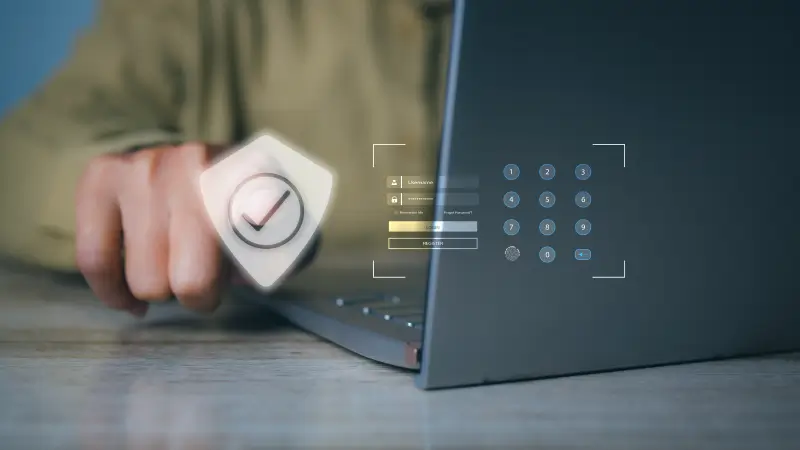Data security has shifted from being the sole responsibility of IT departments to a vital business imperative. This can be attributed to the many data breaches within organizations which result in consumer information being exposed. Because of this, governments around the world have established strict rules, requiring firms to encrypt and protect personally identifiable information (PII).
Notable regulations include the General Data Protection Regulation (GDPR) in the EEA (European Economic Area) and the UK, the Health Insurance Portability and Accountability Act (HIPAA) in healthcare, and the California Consumer Privacy Act (CCPA). The rise in compliance organizations and associated fines has compelled businesses to prioritize data encryption.
SecureData makes navigating these rules and regulations easier with our military-grade encrypted drives. In this post, we’ll highlight invaluable insights into the regulations and compliance related to data protection. We’ll talk about how using encrypted drives can help and give you confidence when handling important business or personal data.
The Importance of Encryption in Data Protection
Encrypted data is information that has been transformed into an unreadable format using cryptographic algorithms in an effort to prevent unauthorized access. This process involves converting plaintext, or original data, into whats called ciphertext. Ciphertext appears as a random string of characters to anyone without the decryption key. Encryption is achieved through algorithms such as AES (Advanced Encryption Standard) or RSA (Rivest-Shamir-Adleman), which use complex mathematical functions to encode the data. This protects stored data (data at rest) and in transit (data transmitted over networks).
For data at rest, encryption prevents unauthorized access to stored data on devices like hard drives, SSDs, or cloud storage. For In transit data, encryption ensures that data being sent over the internet or other networks cannot be intercepted and read by malicious actors. With the increasing volume of data, encryption is essential to mitigate risks such as data breaches and unauthorized access.
Encrypted drives are a comprehensive data protection solution that integrates these encryption principles to safeguard sensitive information. By using encrypted drives, organizations can ensure that data remains secure and compliant with data protection regulations, providing a robust defense against potential data breaches. These drives combine the power of advanced encryption algorithms with physical security features, creating a multi-layered security approach that is essential in today's data-driven environment.
How Using Encrypted Drives Can Help Comply with Data Protection Regulations
Organizations face a complex landscape of data protection regulations designed to safeguard personal information and ensure privacy. Compliance with these regulations is a legal obligation and a critical component of maintaining customer trust and protecting the organization's reputation. Encrypted drives provide a sound solution to meet these strict compliance requirements and enhance overall data security.
GDPR Compliance
The General Data Protection Regulation (GDPR) is one of the most comprehensive data protection laws. GDPR affects any organization that processes the data of individuals within the European Union. Article 32 of the GDPR mandates that organizations implement appropriate technical and organizational measures, including encryption, to protect personal data. Encrypted drives meet this requirement by ensuring that data at rest is securely encrypted using advanced algorithms.
This level of encryption helps mitigate the risks of unauthorized access and data breaches, providing a strong defense against potential fines and legal actions resulting from non-compliance. Moreover, encrypted drives can facilitate data anonymization (the process of removing personally identifiable information from data so that individuals cannot be identified) and pseudonymization (the technique of replacing identifiable information with artificial identifiers or pseudonyms), encouraged by GDPR to further protect personal data by rendering it unintelligible to unauthorized users.
HIPAA Compliance
The Health Insurance Portability and Accountability Act (HIPAA) requires healthcare providers and related entities to implement safeguards to protect Personally Identifiable Information (PII) and electronic protected health information (ePHI). While HIPAA does not explicitly mandate encryption, it does require covered entities to assess and enforce encryption as a reasonable and appropriate safeguard. Encrypted drives offer a practical solution by automatically encrypting ePHI, ensuring that sensitive patient data remains secure both at rest and during transport. Encrypted drives can help healthcare organizations avoid costly breaches and ensure compliance with HIPAA's Security Rule, which emphasizes the importance of safeguarding patient information through technical security measures.
CCPA Compliance
The California Consumer Privacy Act (CCPA) imposes stringent requirements on businesses that collect and process the personal data of California residents. Although the CCPA does not explicitly require encryption, it mandates fines for data breaches involving unencrypted personal information. Organizations can significantly reduce the risk of such breaches by using encrypted drives. Encrypted drives protect personal data with strong encryption, making it unintelligible to unauthorized parties even if the physical device is lost or stolen. This helps compliance with the CCPA and minimizes the financial and reputational damage resulting from data breaches.
SecureData’s Encrypted USB Drives for Regulatory Compliance
Hardware-encrypted USB drives are the gold standard for ensuring compliance with stringent data protection regulations such as GDPR, HIPAA, and CCPA. Unlike software-based solutions, hardware encryption offers robust security features that prevent unauthorized access and tampering. SecureData's award-winning encrypted flash drives and encryped external hard drives meet the highest security standards, ensuring that businesses adhere to legal requirements for data protection.
SECUREDRIVE® BT
Hardware-encrypted drives provide superior security by integrating encryption directly into the drive's hardware. This means that encryption is always active and cannot be disabled by users, ensuring continuous protection of sensitive data. The SECUREDRIVE® BT utilizes AES 256-bit encryption, which encrypts data in real-time, rendering it unreadable without the correct decryption key.
The SECUREDRIVE® BT is validated to FIPS 140-2 Level 3, which mandates rigorous physical and cryptographic security measures to prevent theft, tampering, or unauthorized access. This certification ensures that the drive's cryptographic module is protected by an epoxy coating, making it tamper-evident and resistant to physical attacks. Additionally, the certification guarantees secure key distribution, storage, and destruction mechanisms rigorously tested against potential threats.
The SECUREDRIVE® BT offers a suite of advanced security features designed to meet and exceed regulatory requirements:
- Smartphone or Apple Watch Authentication: Users can authenticate access via their smartphone or Apple Watch, adding a layer of convenience and security.
- Brute Force Anti-Hacking: After ten failed login attempts, the drive automatically deletes the hardware encryption key, preventing unauthorized access.
- Data Erasure: The drive supports NIST SP-800-88 standard data erasure, ensuring that all data is securely wiped during a drive reset.
- Inactivity and Step Away Auto-Lock: These features ensure the drive locks automatically when not in use or when the user moves away from the device.
- Software Free: The drive is also OS-independent and software-free, ensuring seamless operation across various systems without compatibility issues.
Comprehensive Data Protection with SecureData
Utilizing hardware-encrypted drives like SecureData’s SECUREDRIVE® BT is instrumental in enabling organizations to adhere to data protection regulations such as GDPR, HIPAA, and CCPA. This is achieved by guaranteeing that data is securely encrypted both at rest and in transit. Doing so significantly reduces the risk of data breaches, allowing organizations to sidestep substantial fines and legal consequences associated with non-compliance.
The data protection experts at SecureData specialize in providing award-winning encrypted products that provide a comprehensive and compliant solution for safeguarding sensitive information by integrating advanced encryption technologies and robust management capabilities. Contact us today to speak with a specialist, or visit us online to find the best way to protect your crucial data today.


















